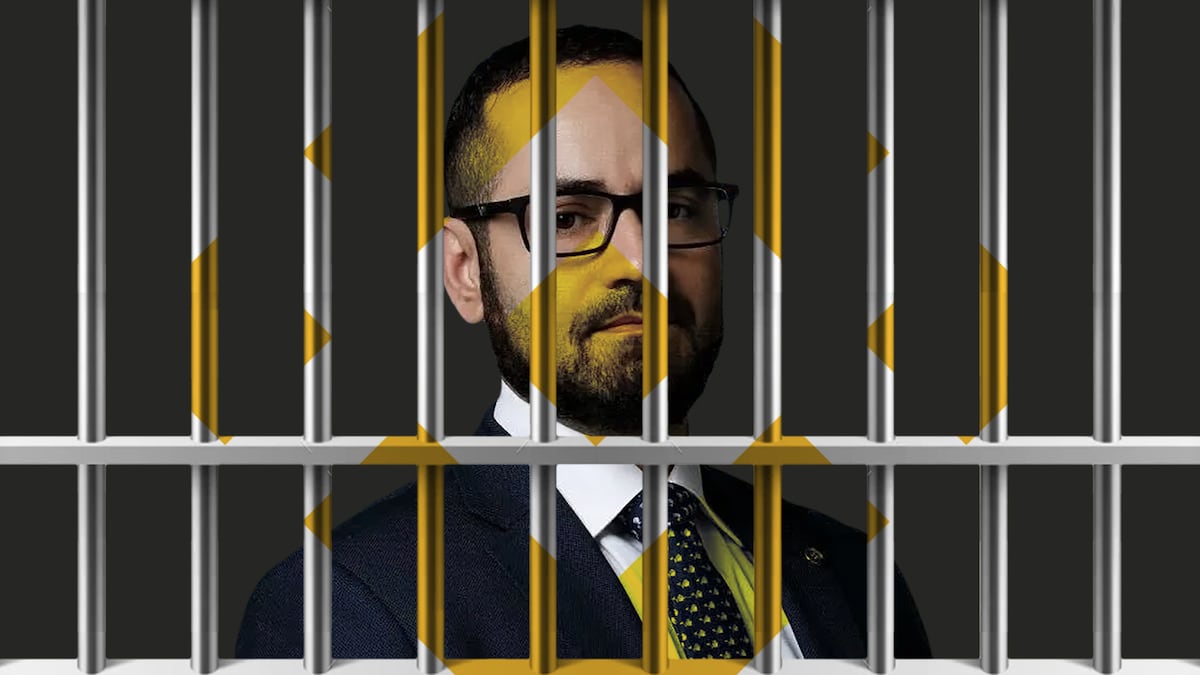- Binance and a pair of senior managers have been charged with money laundering.
- Authorities say trading on Binance poleaxed Nigeria's currency, the naira.
- Crypto exchange's disregard for routine licencing compliance is backfiring.
It’s been six weeks since Binance senior executives Tigran Gambaryan and Nadeem Anjarwalla were detained by Nigerian authorities after arriving in the nation to discuss the crypto exchanges’s operations.
While Anjarwalla, a UK citizen, managed to escape custody and flee the African nation on March 22, Gambaryan’s situation has worsened.
On Monday, the US citizen and head of Binance’s financial crime compliance unit pleaded not guilty to a money laundering charge and was remanded to a prison to await trial. His bail hearing is scheduled for April 18.
In a statement sent to DL News, a Binance spokesperson said the charge against Gambaryan was “meritless.”
“It’s outrageous that he would be remanded in a prison such as Kuje Correctional Facility,” the spokesperson said.
“We are deeply disappointed that Tigran Gambaryan, who has no decision-making power in the company, continues to be detained.”
A problematic model
It’s rare for officers of global companies to be charged with financial crimes during visits to discuss problems with government officials. Then again, Binance doesn’t behave like most international companies.
From the outset, the company has shunned getting licenced in nations where it offers its online services, and now that model is backfiring.
‘It’s outrageous that he would be remanded in a prison such as Kuje Correctional Facility.’
— Binance spokesperson
Under co-founder Changpeng Zhao, Binance operated with a striking disregard for complying with the anti-money laundering and know-your-customer rules that have been de rigueur in finance for decades.
When Binance pleaded guilty in November to violating US banking law by permitting criminals and terrorist organisations to use its crypto exchange, it agreed to pay $4.3 billion to settle the case.
New CEO Richard Teng vowed to turn the page on the company’s freewheeling past. But as the crisis in Nigeria shows, he has a lot of work to do.
Here is a timeline of the crisis so far:
February 22:
DL News reports that Nigerian anti-corruption and security authorities have launched a wide-ranging investigation into Binance’s suspected facilitation of currency manipulation and illicit finance transactions on its platform. The country’s telecommunications regulator also blocks access to the crypto exchange’s website.
February 28:
DL News breaks the story that Nigerian authorities detain Gambaryan and Nadeem Anjarwalla, Binance’s Kenya-based regional manager, after talks break down.
March 5:
Binance delists the naira from its platform and withdraws all of its services in Nigeria leaving its estimated 13 million users in the country scrambling for alternatives.
March 18:
Nigerian court orders Binance to disclose user data for millions of customers to the authorities.
March 22:
Aanjarwalla eludes his guards after a prayer service at a mosque in Abuja and uses his Kenyan passport to fly out of Nigeria.
March 29:
Nigeria’s anti-corruption agency, the Economic and Financial Crimes Commission, charges Binance, Gambaryan, and Anjarwalla with money laundering and related charges.
April 3:
Binance breaks its long silence on the case and tells DL News Gambaryan “does not have decision-making authority” and should not be held by Nigerian authorities.
April 4:
Gambaryan appears in court for his arraignment but cannot enter a plea after Nigerian officials make procedural mistakes.
April 5:
Gambaryan is transferred to an underground jail cell maintained by the EEFC.
April 8:
Gambaryan pleads not guilty to five-count money laundering charge and is remanded to medium-security prison until his bail hearing on April 19.
Edward Robinson is the story editor at DL News. Contact the author at ed@dlnrews.com.
Osato Avan-Nomayo is our Nigeria-based DeFi correspondent. He covers DeFi and tech. To share tips or information about stories, please contact him at osato@dlnews.com.
